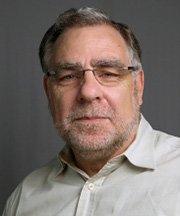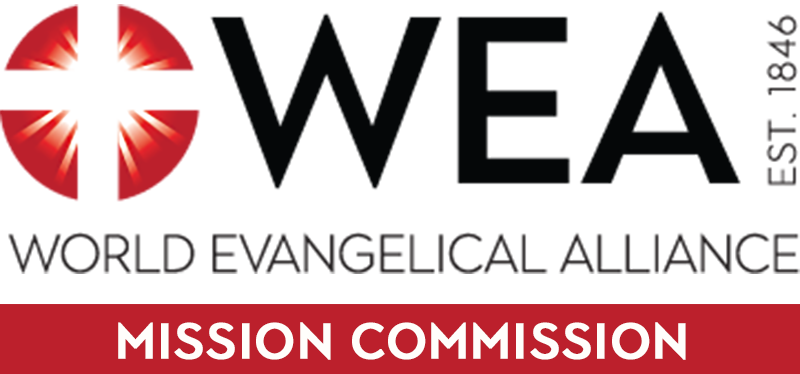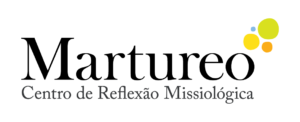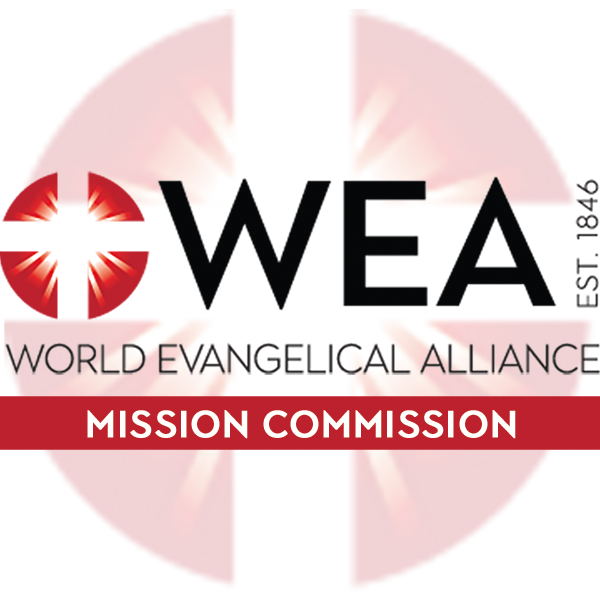MISSIONS IN A COVID CRISIS: CORRUPTION IMPLICATIONS
[40 Minute Read]
Dear fellow participants in God’s mission,
Grace and peace to you in the name of the Lord Jesus Christ.
Esta série de ensaios está agora disponível para leitura em português por cortesia dos nossos amigos de Martureo (Brasil). Clique aqui para ver a versão portuguesa.
The Other Pandemic
COVID and the Cost of Corruption

Roberto Laver
Contributor
Roberto is an international lawyer and international development practitioner with over thirty years of combined professional experience in law and development, non-profit leadership and academia. He began his legal career in Argentina as an associate of an international law firm in Buenos Aires. He now has over three decades of combined experience in multilateral, non-profit, corporate and academic sectors. Roberto has extensive experience in senior management and advisory responsibilities ranging from managing, and advising on, complex World Bank projects to leading a global and ecumenical alliance of faith-based organizations. Core specialties include governance and anti-corruption, rule of law, international development organizations and faith and development. He is recognised as a strong strategic thinker, consensus builder and an honest and enthusiastic leader. Roberto is currently the leader of FIDES, an NGO for helping engage and equip church leaders and communities in promoting public integrity and fighting corruption.
The coronavirus pandemic has taken a drastic human toll, infecting millions and killing hundreds of thousands of people worldwide. This is not only a health crisis but also an economic and social one. Throughout the world, the virus has compelled governments to severe lock downs, causing the most brutal recession in living memory. The impact of the virus, however, is not the same for everyone.
The pandemic is exposing the devastating effects and actual risks of the “other pandemic”: systemic corruption. Often being dismissed as “normal” or simply too “political” or too big to address, systemic corruption has been largely neglected by the Church. However, we cannot afford to ignore this injustice anymore. Systemic corruption (as the institutionalized practice of abuse of power and public trust) has severely crippled the ability of most countries to deal with the health and economic costs of the pandemic. The amount of health care funds lost to graft and embezzlement alone is staggering. Various sources estimate that more than 10 percent of global healthcare spending is reaped by bribery and embezzlement, amounting to losses of more than $500 billion annually [1]. This estimate does not account for other corrupt practices that undermine the access and quality of health services such as pervasive clientelism, cronyism, nepotism and favouritism.
Corruption is like gasoline poured on the flames of a pandemic.
To add insult to injury, the pandemic has served as a perfect setting for increased corruption. Shortage-induced bribery, diversion of emergency response resources, and kickbacks in emergency procurement processes are just a few of the prevalent forms of corruption being manifested during this pandemic. This raises the social, human and economic costs of the crisis, particularly for the most vulnerable of society. Where patients can pay bribes or use personal connections to receive prompt access to care, the most vulnerable are left at the bottom of the waiting list. If bribery and connections are used to circumvent quarantine measures, there is a potential higher infection risk posed to the overall population, further intensifying the humanitarian crisis.
A recent piece published by Carnegie Endowment put this way:
Corruption is like gasoline poured on the flames of a pandemic. Healthcare systems already debilitated by graft will struggle to address the most basic of needs during the crisis. Citizens who can’t afford to pay bribes may be locked out of access to testing and treatment, a problem that would accelerate the virus’s spread. Those who can bribe their way out of quarantines will probably do so… And government attempts to convey public health messages are likely to fall flat in places where decades of corruption have deeply undermined trust in the state.[2]
The pandemic has triggered massive amounts of public spending around the world to deal with its health and associated economic costs. Levels of international financial aid are unprecedented; the IMF alone has already provided about US$90 billion to help 80 countries deal with the pandemic and has pledged a total of $250 billion. [3] But evidence shows that the effectiveness of this financial aid will be severely weakened in contexts of widespread corruption. [4] Several reports of fraud and corruption have emerged related to public spending associated with the COVID-19 crisis. [5]
Civil society actors in countries around the world are demanding that there be strong safeguards and accountability for emergency assistance related to COVID-19. In Latin America, thirteen national chapters of Transparency International, the largest anti-corruption NGO in the world, presented specific proposals to mitigate the risk of corruption in public procurement as part of the region’s response to the pandemic. [6] Among these chapters is the Association for a Just Society (Asociación para una Sociedad Justa or ASJ in Spanish), a Christian NGO in Honduras and member of the Faith and Public Integrity Network (FPIN [7]). ASJ, together with many other civil society groups, is actively monitoring the health and other public expenditures being made by its respective country government. AJS is an inspiring model of engagement of a group of believers in the fight against governmental corruption in their own community.
We need to build cultures of integrity, including values of fairness and honesty, citizen participation and political engagement and social capital.
Corruption, as an expression of profound injustice, should matter to believers, in relation to our own behaviour and witness and to the social order in which we live. The pandemic crisis is a wake-up call for the church, its leaders and all followers of Jesus, that fighting corruption is central to our integral mission. Corruption matters to God immensely.
Corruption destroys a nation (Proverbs 29:4). It is an outright theft of funds, resources, opportunities, hopes and the ability to develop our God-given potential and capacities. It is a cancer with corrosive effects on the political, economic and social development of societies. It is the worst obstacle to alleviating poverty. It is the denial of justice and an obstruction to shalom, the wellbeing of all in society. Furthermore, as the pandemic shows, it is a matter of life and death.
We are all hopeful that an effective vaccine will be promptly developed and equitably distributed for COVID-19. However, no simple vaccine can be developed for this “other pandemic”. There is no single panacea against corruption.
For the last three decades, mainstream international organizations, national governments and experts have been promoting and implementing anti-corruption measures. Changes in constitutional structures, new laws on transparency and accountability, and new anti-corruption agencies are some of the most common tools. These reforms are primarily about legal and institutional changes, expecting that these will deliver actual changes in behaviours and shifts in culture. Yet overall, these reforms are not producing a sustainable transformation of societies towards stronger public integrity and lower corruption. Countless evaluations, corroborated by our lived experiences, tell us there has been little change. Despite decades of reforms, and billions of dollars invested, most countries remain as corrupt or are even worse than before the reforms.
There is a growing realization within the anti-corruption community that fighting corruption is not simply a technocratic endeavour, but one that involves deeper changes in cultural and social norms about how citizens relate to the state and among themselves. Legal and institutional reforms are mediated and conditioned by the prevailing political culture and social norms of societies. In societies where norms of privilege, particularism and favouritism prevail, it is hardly surprising that merely changing formal laws or institutions will have no effect. Worse, as many cases show, these changes may be manipulated and abused to the detriment of those demanding honest public services.
Expert voices are emphasizing that societies need to build stronger cultural or normative constraints against corrupt behaviour. Legal changes are not enough. We need to build cultures of integrity, including values of fairness and honesty, citizen participation and political engagement and social capital.
The Church, its leaders and believers at large, are well positioned to be agents of positive transformation.
The Church, its leaders and believers at large, are well positioned to be agents of positive transformation. We need, however, to ask ourselves: How are churches and their leaders modelling and instilling values of public integrity and responsible citizenship? To what extent are churches encouraging collective action to influence the governance structures and practices in society?
Tragically, we must admit that the picture is not very encouraging. Public integrity and corruption are issues virtually absent from pulpits and theological reflection. Professions of faith are not accompanied by attitudes and behaviours of public integrity. We witness too many instances where church leaders and believers are participants in corrupt practices, or passive and indifferent to its presence and devasting effect on communities—particularly on the poorest and less advantaged in society.
We pray that the COVID-19 crisis will prompt us to be a transformed Church actively engaged and committed to help cure the “other pandemic”.
Footnotes
- https://carnegieendowment.org/2020/04/13/how-global-corruption-threatens-u.s.-pandemic-response-pub-81545
- ibid.
- https://www.imf.org/en/Topics/imf-and-covid19/COVID-Lending-Tracker
- For example, Ebola: https://carnegieendowment.org/2020/04/13/how-global-corruption-threatens-u.s.-pandemic-response-pub-81545 and US relief efforts during Hurricanes Katrina and Rita: https://thefactcoalition.org/wp-content/uploads/2020/04/TI-Factsheet-Emergency-Spending-Recommendations-42218.pdf
- See: https://www.occrp.org/en/coronavirus/
- https://www.transparency.org/en/press/coronavirus-sparks-high-risk-of-corruption-across-latin-america
- FPIN is a global network of Christians who pursue public integrity work in their local communities, nationally and globally. For further details, see https://fpinetwork.org/
Corruption Implications
A Mission Commission Response
Roberto Laver wrote, “We are all hopeful that an effective vaccine will be promptly developed and equitably distributed for COVID-19. However, no simple vaccine can be developed for this ‘other pandemic’. There is no single panacea against corruption”. He goes on to say that he and other experts believe solutions lie with transforming the hearts of societies, to build cultures of integrity that value fairness, honesty and full participation for all members of a society. This has to be part of our missions engagement with the world. Spiritual regeneration and our transformation as believers in loving community must flow out to positively influence society around us as a blessing to all. Positive social impact is part of a church’s reason for being. For that to happen, for us to be salt and light, we first need to ensure our own house is in order. As Peter declared, judgment “must begin with God’s household” (Peter 4:17 NLT).
We should all be acutely aware by now of how widespread corruption can be—even within churches and missions. In this article we will focus primarily on finance related corruption, but groups of believers are not immune to other types, like the misuse of power and privilege. We all remain susceptible to manipulation and deceit. Temptation can get the better of any of us.
The damage caused by corruption anywhere, but especially in churches, ministries and missions, is wide ranging and deep… the abuse of trust is not easily resolved.
An Indictment
Todd Johnson, Gina Zurlo and others have been exposing various forms of corruption as part of their research for the World Christian Encyclopedia. In May 2015, for an article in The Review of Faith & International Affairs they wrote,
Christians, like members of many other religious communities, are especially susceptible to affinity fraud—fraud exploiting the trust that exists within the religious community. Often in these cases, a trusted pastor or other leader makes a case for a remarkable profit on an investment. Though it is “too good to be true,” many still invest because they trust the leader. In the case of Ponzi schemes, the first investors receive their promised profits, but only at the expense of the later investors. These schemes collapse when enough new investors can no longer be recruited to make payments to the existing ones. [1]
The case of this sort best known to the Mission Commission and the Global Member Care Network starts back in the mid-1990’s with the NCI (Nordic Capital Investment) special investment fund, in which members of YWAM and the Le Rucher missions retreat centre invested savings. [2] The call for accountability regarding that case continues to this day. [3] The damage caused by corruption anywhere, but especially in churches, ministries and missions, is wide ranging and deep. As any relationship counsellor knows, the abuse of trust is not easily resolved. When asset loss is involved, the impact and hurt is long lasting.
Painful examples such as the NCI deception, provide a ‘reality-check’ to the depersonalised statistics on corruption that Johnson and Zurlo reveal in their annual World Christian Encyclopedia updates. Todd Johnson estimated in February 2020 that US$52.6 billion will be lost this year to ecclesiastical crime—funds “stolen from money that Christians give to churches, para-church organizations and secular organizations all over the world.” [4] In light of an increase in the amount of money now passing through the hands of churches and ministries for global COVID-19 relief, US$52.6 billion is likely a very conservative figure. Even at this conservative estimate, the level of funding stolen from Churches, ministries and missions exceeds the estimated TOTAL amount of funding given for foreign missions by at least US$6 billion! [5]
We donate to ministries and missions because we have faith that our generosity will be wisely used to achieve the purposes for which they are given. These days most donors are aware that a portion of donations are rightly used to support organisational infrastructure and the administration of related projects, but there are limits to what we consider as acceptable deductions. Experiences of embezzlement, misappropriation, mismanagement, misallocation or excessive redirection of funds can quickly undermine the faith of donors and hinder future giving for all charitable causes. Therefore, we must all be careful to avoid such potentialities. If fighting corruption is to be included as part of integral mission, we must first make sure our ministries and missions are not prone to corruption.
Culture Transformation
Laver noted that, “We need to build cultures of integrity in our societies, including values of fairness and honesty, citizen participation and political engagement and social capital.” That is much easier said than done. It first requires a transformation of the human heart, and the influence of many such transformed persons. The least corrupt nations of the world are so largely because their societies have long been influenced by Judeo-Christian (Biblical) values. The promised benefits of secularism are only possible because of the residual assumption of Biblical values that remain in societies. The further they move away from the knowledge of God, the less influential those values will be.
Values do not influence societies overnight, and people do not change their ways quickly. There needs to be sustained education and modelling of what the Bible calls justice and righteousness. Values arising from Godly ethics not only need to be seen as beneficial and attractive for a society, the power to live according to such values needs to be offered. We speak, of course, of the Holy Spirit who makes all this transformation possible. Secular humanism knows nothing of this power, so will never attain such transformation.
The global missions community has an opportunity to lead by prophetic example in showing how transformed lives can impact societies for the better. Workers in missions live at the coal face of whole-of-life gospel ministry in places where the gospel is not well understood. Integrity in finance and positional power stands alongside justice, mercy, reconciliation and other attributes that are integral to the whole message of the gospel. We should no longer limit our focus on teaching new believers about abstract concepts of the faith, we must root them in real-world implications that require attitudinal and behavioural change. A disciple of Christ, being transformed by the Spirit of God, will embrace integrity as part and parcel of their new life, but they need to be taught what it means.
A standard must be established and modelled—by church and ministry leaders no less. Selfish gain, greed, misuse of power and position and related vices must be exposed as unacceptable in the shalom Kingdom of God. This was made mortally apparent in the fledgling Jerusalem Church (see Acts 5:1-10).
Develop robust accountability everywhere, guided by Biblical standards of integrity, while being sensitive to the cultural nuances of each context.
Create Accountability
To avoid the possibility of corruption, churches, ministries and missions need to strengthen their governance and accountability structures much the same way as Laver noted that governments and corporations do with anti-corruption measures. This means being willing to be a lot more transparent about how things are done and how resources are used, as well as inviting regular independent reviews or audits.
The Mission Commission holds its leaders and all Mission Commission Associates to a high standard of integrity. The most recent expression of this is The Grenada Covenant formed in 2006, which remains in place. [6] Furthermore, the Mission Commission not only reports to the World Evangelical Alliance’s Missions and Evangelism Department Director who reports to the Secretary General and (ultimately) the WEA’s International Council, but it is also governed internally by an active Global Leadership Council with a proactive Executive Committee. The Mission Commission’s accounts are audited along with the WEA’s finances, as well as being transparent to the Global Leadership Council and others involved in the managing of resources, with necessary checks and balances in place.
Todd Johnson observes that,
Nonprofit organizations—especially those that begin as small, under-resourced volunteer-run organizations—face even tougher challenges in combatting financial fraud. Because they often focus on their mission rather than strong administrative practices, a neglect of financial concerns can easily result. This neglect can be exacerbated when they enjoy tax-exempt status, as in the United States. Nonprofits also tend to be more trusting of their employees, assuming that they share the organization’s philanthropic goals. Charities that experience embezzlement—and many do—try to handle it quickly and quietly to avoid ruining their reputations, undermining their work, and thus receiving fewer donations. Consequently, most nonprofit fraud goes unreported. [7]
In developed nations like Australia, Canada, New Zealand, Western European states, UK, and the USA, charities are subjected to rigorous governance, accountability, reporting and auditing processes to mitigate corruption. Still, corruption exists and is regularly exposed. Fraud can happen for years before it is finally discovered. No system is foolproof. Christian organisations in some of these nations agree to submit to a higher standard of accountability to further avoid the possibility of corruption. For example, the Evangelical Council for Financial Accountability (ECFA) in the USA [8], the Council of Christian Charities in Canada (CCCC) [9], and the CMA Standards Council in Australia [10]. Accreditation with these independent standards-setting and evaluating organisations provides churches, ministries and missions with an extra layer of accountability and has the benefit of strengthening trust with their members and donors.
Seeking to meet global demand from Christian organisations for more accountability training, Gary Hoag (former ECFA International Liaison) established Global Trust Partners in 2019. [11] Global Trust Partners provides replicable training and resources to strengthen organisational governance and accountability. In their words,
Global Trust Partners is building a multi-national team of qualified consultants and trainers to establish a global stewardship network that can help develop robust accountability everywhere, guided by Biblical standards of integrity, while being sensitive to the cultural nuances of each context. Note their aim: “to build trust and grow local generous giving…” If post-pandemic missions becomes more indigenous (or near-culture oriented) as many suspect, raising funds locally will be a very important factor. Trust building will be essential. Training and resources such as those provided by Global Trust Partners should be prioritised.
Missionaries would be wise to follow the lead of mature local believers who should discern how best to tackle corruption in their own contexts.
Champion Anti-Corruption
Members of churches, ministries and missions need to be anti-corruption champions wherever the Lord calls them to minister. This means to prophetically expose and stand against institutionalized practices of abuse of power and public trust wherever they are identified. Wisdom ought to prevail, however. In many missions contexts overt criticism of corrupt practices could result in painful push-back, prosecution, deportation or worse. Therefore, expatriate missionaries would be wise to follow the lead of mature local believers who should discern how best to tackle corruption in their own contexts. Expatriates must remain aware of the contextual factors at play and not be too quick to judge something as corrupt according to their home-culture values. Universal principles do apply [13], but cultural values must also be considered, while keeping Biblical ethics in mind. All this assumed, quality anti-corruption training can help missions workers help locals fight corruption on their terms for the betterment of their societies.
We close with these good practice tips from Todd Johnson, that can help avoid the possibility of corruption by way of fraud or embezzlement within Christian organisations:
- Take proactive measures. Organizations that have means for reporting suspected embezzlement (such as hotlines) tend to catch cases of fraud before they become massive. Other proactive measures include more frequent managerial reviews, internal (not just external) financial audits, and closer monitoring of the actions of employees (especially those with access to money).
- Know who has access to money. Whether on a single computer or a network, financial information should be accessible only by those who absolutely need it. Users should have unique identification numbers and be required to change passwords periodically. Only the appropriate leaders should be able to delete or change transactions.
- Provide financial training. Small groups lack the resources of larger organizations, but even a little training for managers and staff members will equip them in spotting ecclesiastical crime.
- Monitor employees (and volunteers). Most fraudsters are first-time offenders, so preemployment background checks are unlikely to catch potential criminals. Thus, continuous monitoring of individuals, no matter how much they are trusted, is necessary. This includes how people are spending their time or money (elaborate vacations, new houses, cars, etc.); unusual changes can be a sign of potential embezzlement activity.
- Provide education about the consequences of fraud for the individual, the organization, its mission, and its clients.
- Take action. If you suspect criminal activity, discuss it with an accountant, trusted friend, or business colleague. Most importantly, find an attorney who specializes in these cases before taking matters into your own hands.
- Have insurance coverage. (Where possible,) this is critical for any business or organization with employees. Insurance coverage is a source—and often the only source—for recovery of lost assets. [14]
Footnotes
- Johnson, T. M. Zurlo, G. A. Hickman A.W. Embezzlement In The Global Christian Community, The Review of Faith & International Affairs. Vol 13 No. 2, 74-84. Available to download from https://www.researchgate.net/publication/277977397_EMBEZZLEMENT_IN_THE_GLOBAL_CHRISTIAN_COMMUNITY
- There are various accounts of this deception available online, perhaps the most well documented is the PETRA People Network blog maintained by Kelly and Michèle O’Donnell (https://petranetwork.blogspot.com). A concise (older) Christianity Today report can be read online here in the context of other examples of ministry-based fraud: https://www.christianitytoday.com/ct/2011/june/fleecingfaithful.html.
- The petition for information related to NCI remains open: https://www.ipetitions.com/petition/shine-the-light-together/.
- https://www.gordonconwell.edu/blog/ecclesiastical-crime/
- See point 66, “Income of Global Foreign Missions” in Status of Global Christianity, 2020, in the Context of 1900–2050, downloadable here: https://www.gordonconwell.edu/center-for-global-christianity/wp-content/uploads/sites/13/2020/01/Status-of-Global-Christianity-2020.pdf
- https://www.gordonconwell.edu/blog/ecclesiastical-crime/
- https://weamc.global/who-we-are/integrity/
- https://www.ecfa.org
- https://www.cccc.org
- http://www.cmasc.net.au
- https://www.gtp.org
- https://www.gtp.org/about/
- An example of ‘universal principles’ is the United Nation’s development of the 10th Principle of the UN Global Compact. https://www.unglobalcompact.org/what-is-gc/mission/principles/principle-10.
- https://www.gordonconwell.edu/blog/ecclesiastical-crime/
Pray
- For the Lord, who sees all, to convict us of any lapses of integrity in our lives and organisations.
- For willingness to be accountable, vulnerable and transparent in our use of resources and in our relationships.
- That we will be sensitive to areas that are susceptible to corruption so that we may put protective measures in place, without becoming paranoid or overly suspicious of our colleagues and partners (as the Russian proverb says: Доверяй, но проверяй, [Doveryay, no proveryay], “Trust, but verify”).
- Protection over our relationships and hearts, that we will not be easily swayed by the confidence of deceptive people and wooed into a false sense of trust in plans and strategies that promise outstanding returns. Let us guard ourselves against greed and envy.








